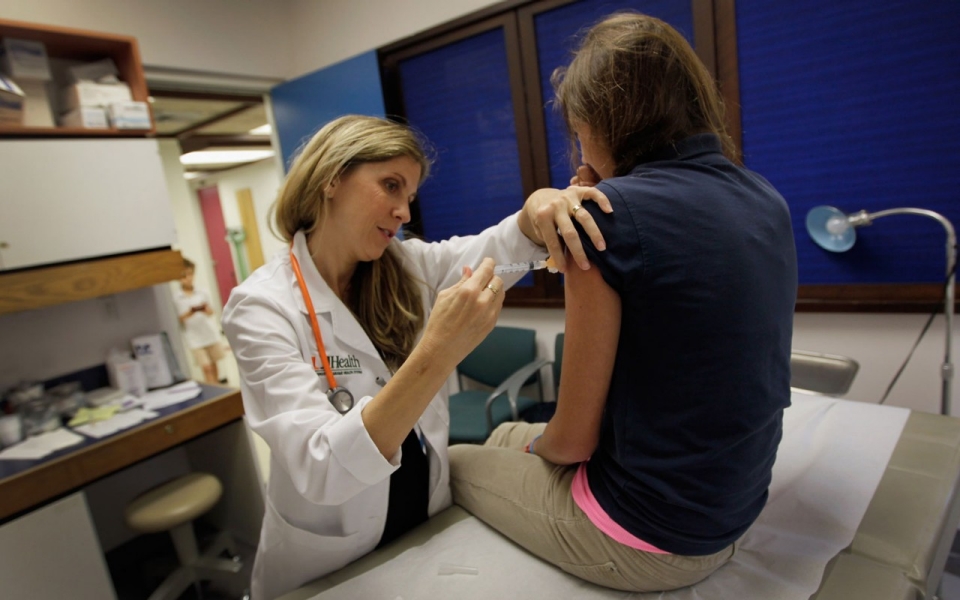15Sep2017
Does parents’ socio-economic status matter in intentions of vaccinating against human papillomavirus for adolescent daughters?
by admin, 0 Comments

Frank Pan, Hui-Gan Shu
1. Tajen University, Medical Tourism Research Center
2. Kaohsiung Veteran General Hospital, Pingtung Branch, Department of Laboratory
Abstract
Background: The Human Papilloma Virus (HPV) vaccination provides substantial protection, and it is best to be taken before the age of twelve. Taiwan approved HPV vaccines since 2006. However, very few female adolescent have been vaccinated until now.
Objectives: To examine whether the parents’ socio-economic status matters in deciding to purchase HPV vaccination for their daughters based on the theory of planned behavior.
Method: A structured questionnaire to collect 394 responses from parents of adolescent girls in Taiwan. Data was coded to categorize relevant socio-economic classes, and was analyzed with SPSS.
Results: The behavior intentions of parents with low (mean= 5.28) and high (5.01) socio-economic status are
signifcantly stronger than the moderate (4.56) in deciding to purchase the HPV vaccination. Socio-economic factor has a slightly negative impact (B= -0.08), and attitude (0.68), subjective norms (0.16), and behavior control (0.32) have positive impacts on the parents’ intention.
Conclusion: Major impacts on the decision to purchase an HPV vaccination for their adolescent was not due to the
parents’ socio-economic status but the parent’s attitude. As the major predictor of a less complicated decision, attitudes toward the HPV vaccination should be reinforced through continuous communications between service providers and patient-advocate groups.
Keywords: Human Papillomavirus, cervical cancer, theory of planned behavior, vaccination, adolescent
DOI: http://dx.doi.org/10.4314/ahs.v15i1.4
Recent Posts
- Editor’s choice: Tackling infectious diseases, NCDs and sexual reproductivehealth issues as we enter our 24th year of remarkable growth
- Preconception and contraceptive care for women living with HIV/AIDSattending antiretroviral treatment clinics in Lagos State, Nigeria
- Effects of SNPs on TNF-α and IL-10 cytokine expression in TB and HIVpatients in the Capricorn district, Limpopo Province, South Africa
- Prevalence of Schistosomiasis in a neglected community, South western Nigeria at two points in time, spaced three years apart
- Review of Leishmaniasis in the Middle East and North Africa
Recent Comments
Categories
- 2001 Issues
- 2002 Issues
- 2003 Issues
- 2004 Issues
- 2005 Issues
- 2006 Issues
- 2007 Issues
- 2008 Issues
- 2009 Issues
- 2010 Issues
- 2011 Issues
- 2012 Issues
- 2013 Issues
- 2014 Issues
- 2015 Issues
- 2016 Issues
- 2017 Issues
- 2018 Issues
- 2019 Issues
- 2024 Issues
- Articles
- December issue
- December Release
- June Issue
- June Release
- March Issue
- March Issue
- March Release
- News
- number / volume 2
- number /volume 1
- number /volume 1
- number /volume 1 2008
- number 1
- number 1
- number 1
- number 1
- number 1
- number 1
- number 1
- number 2
- number 2
- number 2
- number 2
- number 2
- number 2
- number 2
- number 2 special Issue
- number 2 special Issue 2
- number 3
- number 3
- number 3
- number 3
- number 3
- number 3
- number 3
- number 4
- number 4
- number 4
- number 4
- number 4
- number 4
- number/ volume 3 2008
- number/ volume 4 2008
- number/volume 1
- number/volume 1
- number/volume 2
- number/volume 2
- number/volume 2 2008
- number/volume 3
- number/volume 3
- number/volume 3
- number/volume 4
- number/volume1
- September Issue
- September Release
- Special Edition
- special Issue
- Uncategorized
- Vol. 24 No. 1 (2024)
- volume 1
- volume 1
- volume 1
- volume 2
- volume 2
- volume 2
- volume 2
- volume 2
- volume 3
- volume 3
- volume 3
- volume 3
- volume 4
- volume 4
- volume 4
- volume 4
- volume1
Categories
- 2001 Issues
- 2002 Issues
- 2003 Issues
- 2004 Issues
- 2005 Issues
- 2006 Issues
- 2007 Issues
- 2008 Issues
- 2009 Issues
- 2010 Issues
- 2011 Issues
- 2012 Issues
- 2013 Issues
- 2014 Issues
- 2015 Issues
- 2016 Issues
- 2017 Issues
- 2018 Issues
- 2019 Issues
- 2024 Issues
- Articles
- December issue
- December Release
- June Issue
- June Release
- March Issue
- March Issue
- March Release
- News
- number / volume 2
- number /volume 1
- number /volume 1
- number /volume 1 2008
- number 1
- number 1
- number 1
- number 1
- number 1
- number 1
- number 1
- number 2
- number 2
- number 2
- number 2
- number 2
- number 2
- number 2
- number 2 special Issue
- number 2 special Issue 2
- number 3
- number 3
- number 3
- number 3
- number 3
- number 3
- number 3
- number 4
- number 4
- number 4
- number 4
- number 4
- number 4
- number/ volume 3 2008
- number/ volume 4 2008
- number/volume 1
- number/volume 1
- number/volume 2
- number/volume 2
- number/volume 2 2008
- number/volume 3
- number/volume 3
- number/volume 3
- number/volume 4
- number/volume1
- September Issue
- September Release
- Special Edition
- special Issue
- Uncategorized
- Vol. 24 No. 1 (2024)
- volume 1
- volume 1
- volume 1
- volume 2
- volume 2
- volume 2
- volume 2
- volume 2
- volume 3
- volume 3
- volume 3
- volume 3
- volume 4
- volume 4
- volume 4
- volume 4
- volume1
